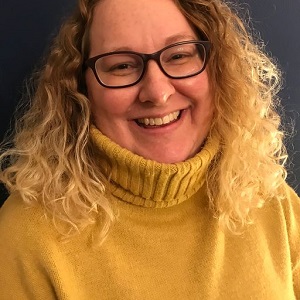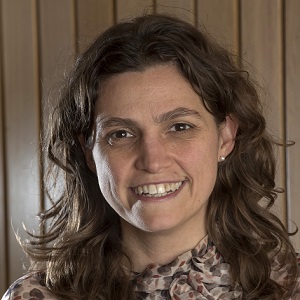Sue Fletcher-Watson is Professor of Developmental Psychology at the University of Edinburgh, and Director of the Salvesen Mindroom Research Centre. She is interested in how children grow and learn, with a particular focus on development and neurodiversity. Her work draws on rigorous methods from psychology and applies these to questions with clinical, educational and societal impact. She strives to achieve meaningful partnerships with community representatives and to support neurodivergent leadership in research. She is an advocate for open science and good citizenship in research, and serves as Co-Director of Research Ethics for the College of Medicine and Veterinary Medicine.
Can you give us an overview of your work?
At the Salvesen Mindroom Research Centre, we’re fundamentally interested in doing research that can help us understand and tackle the inequalities experienced by neurodivergent people – in childhood and across the lifespan. What do I mean by inequalities? Well, neurodivergent people are more likely to experience mental health problems and they report lower quality of life. They can experience shorter life expectancies and difficulties accessing healthcare. They are more likely to be unemployed, homeless and in the prison population. In childhood, neurodivergent young people are more likely to be excluded from school, or to miss school, and they participate less in class. Across the lifespan neurodivergent people experience more bullying and victimisation, including sexual harassment and intimate partner violence. So neurodivergent people are drawing the short straw in a whole host of ways and we want to do work that understands why those inequalities arise and what can be done about them.
What are your most recent and exciting results?
One of our most exciting projects is called LEANS: Learning About Neurodiversity at School. This is a piece of work we’ve been doing for just over two years. The early phase was focused on participatory design of materials to teach primary school aged children about the concept of neurodiversity. We want to shift young children’s attitudes and beliefs – about themselves and about each other – to be more positive, inclusive and accepting. The materials were then evaluated in schools and now we have released them for free. We think this is a really important example of participatory work with a practical impact.
What do you think are the main challenges in this research field?
I think adoption of a neurodiversity model across research and practice is a really important next step for the field. But that will certainly be easier said than done and it raises a lot of key questions. Things like, what is the role of diagnosis? How can we push back against pathologisation and stigma, while also ensuring people get the support they need? I’m excited about these challenges though and I think if different groups with an investment in the field work together, we can get it right.




